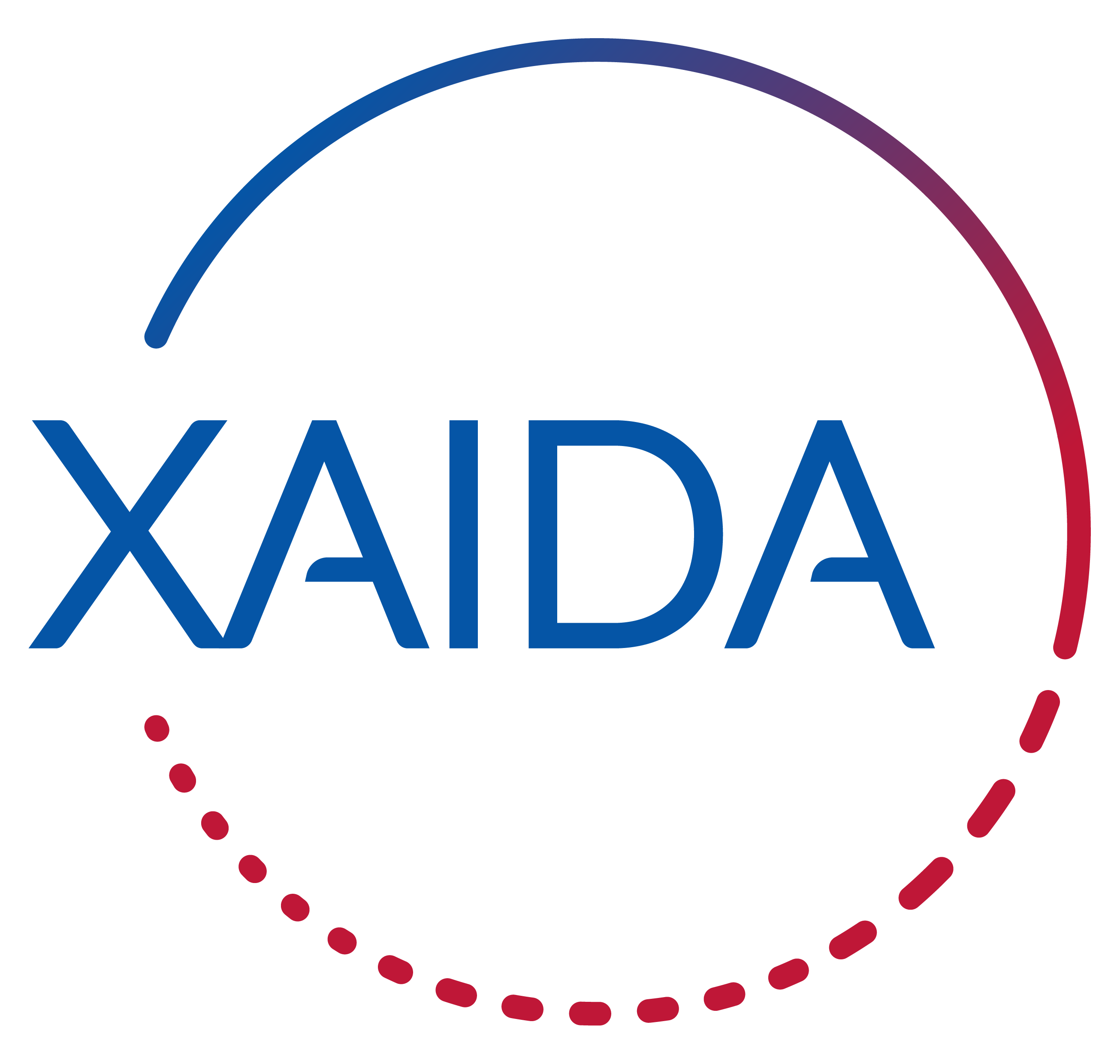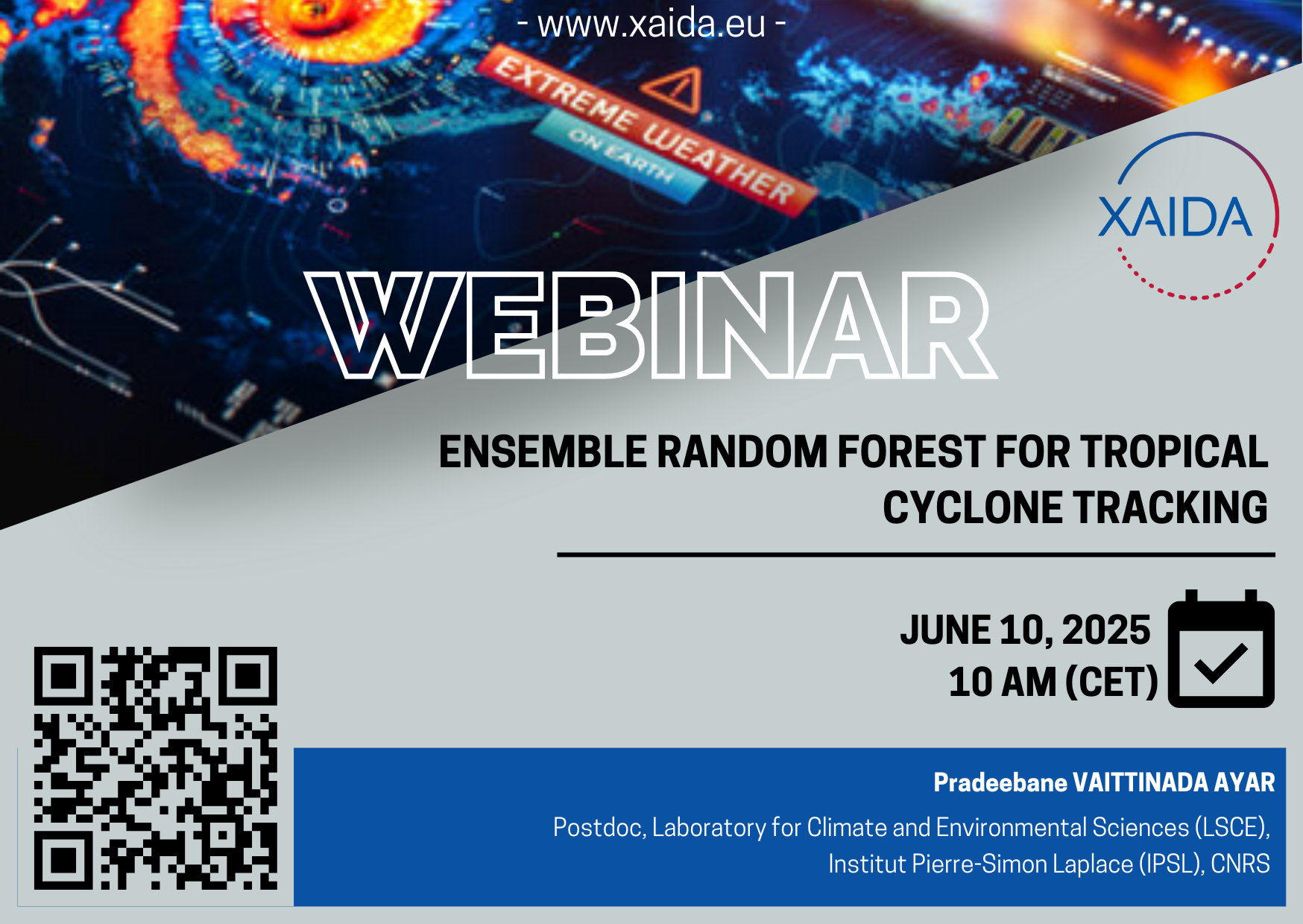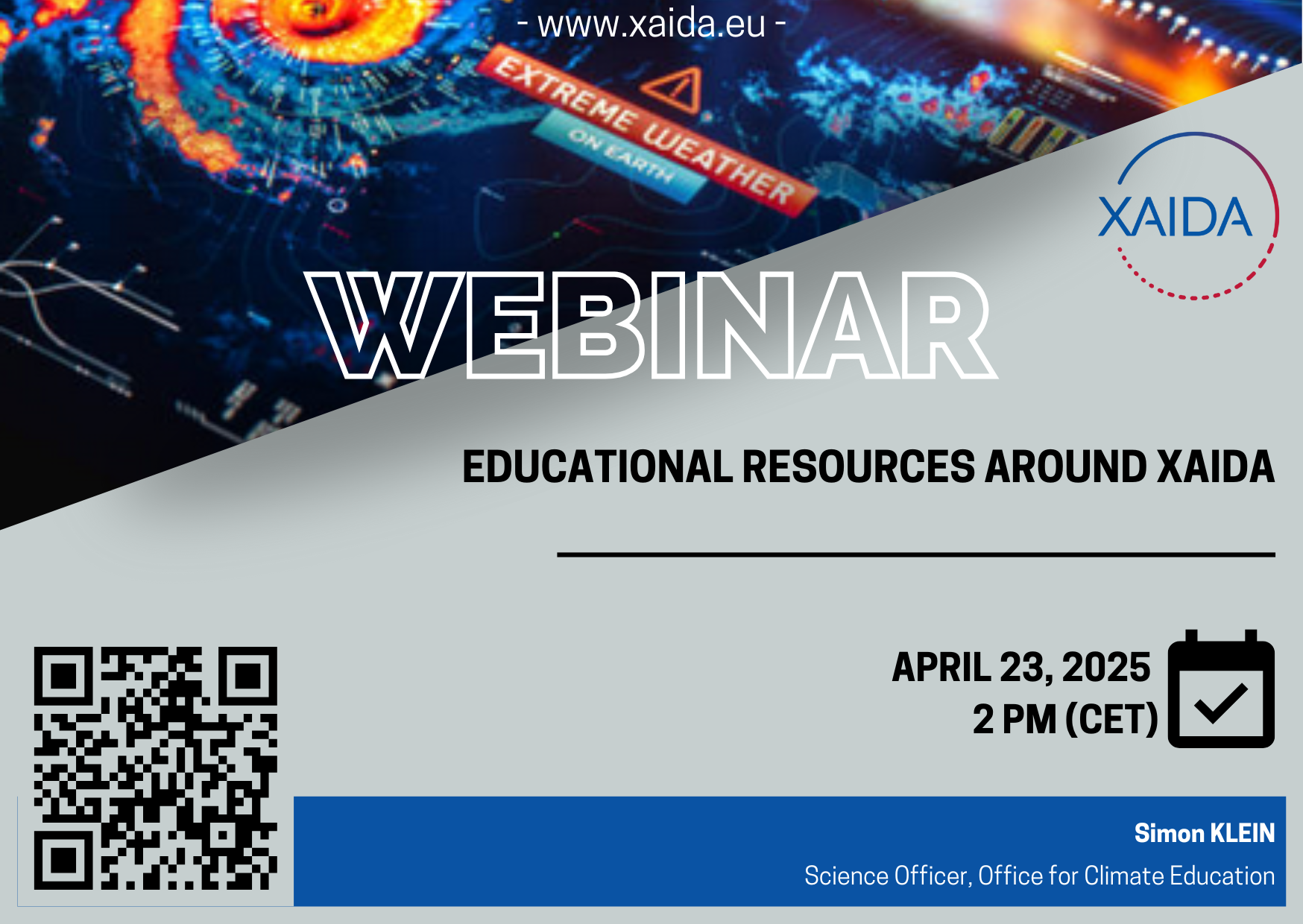WEBINARS 2025


XAIDA is hosting an open webinar every other month. Within the XAIDA project, seventeen research institutes and climate risk practitioners, aim to develop and apply novel artificial intelligence methods to better assess and predict the influence of climate change on extreme weather. Join the webinar each month to dive into interesting topics such as machine learning for climate extremes, the societal impact of extremes, and education about climate change.
Coordination: Manon Rousselle (IPSL)
Registration: xaidaproject@gmail.com
Programme 2025
January 7 2pm CET | Dominik SCHUMACHER (ETH Zurich) | Storylines of Heat and Drought |
January 21 2pm CET | Svenja SEEBER (ETH Zurich) | How extreme was the global heat in 2023/24? |
February 18 2pm CET | Aglaé JEZEQUEL (LMD-IPSL) | Broadening the scope of antropogenic influence in extreme event attribution |
March 18 2pm CET | Oana-Iulia POPESCU (TU Dresden) | Causal discovery with endogenous context variables |
April 23 2pm CET | Simon KLEIN (OCE) | Educational Resources around XAIDA |
June 10 10am CET | Pradeebane VAITTINADA AYAR (LSCE-IPSL) | Ensemble Random Forest for Tropical Cyclone Tracking |
XAIDA Webinar #18
The 18th session of our webinar will occur on June 10th, 2025 at 10AM (10:00) CET. During this webinar Dr. Pradeebane Vaittinada Ayar will discuss his work on ‘Ensemble Random Forest for Tropical Cyclone Tracking’.
‘Even though tropical cyclones (TCs) are well documented during the intense part of their lifecycle until they start to evanesce, many physical and statistical properties governing them are not well captured by gridded reanalysis or simulated by Earth system models. Thus, the tracking of TCs remains a matter of interest for the investigation of observed and simulated tropical cyclones. Two types of cyclone tracking schemes are available. On the one hand, some trackers rely on physical and dynamical properties of the TCs and user-prescribed thresholds, which make them rigid. They need numerous variables that are not always available in the models.
On the other hand, trackers are leaning on deep learning, which, by nature, needs large amounts of data and computing power.’
Check out the details to attend and follow the discussion!
XAIDA Webinar #17
The 17th session of our webinar will occur on April 23rd, 2025 at 2PM (14:00) CET. During this webinar Dr. Simon Klein will discuss the current work he is developing whit his team at the Office for Climate Education (OCE) for adapting research topics covered by XAIDA teams into class activities, ready for use for middle school teachers around the globe.
Check out the details to attend, discuss and follow the discussion!


